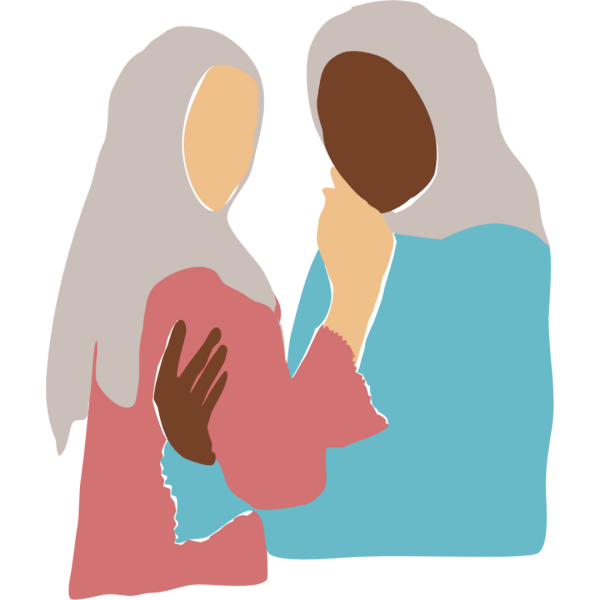
Advocacy Work Lived Experiences
Helpline Casework Story

Rubina had been married for several years and has had children. She had fled from a mentally and physically abusive relationship. She had decided enough was enough and filed for divorce following years of separation. During her married life, she had been constantly belittled, humiliated and subjected to coercive control tactics. Her husband had used their children to emotionally break the client, and severed her family/friends’ connections as she was not allowed to have any contact with them. The couple had tried counselling over the years which only aggravated the husband further.
Rubina had been through a period of low self-esteem, self-doubt, depression, anxiety and in general, a roller-coaster of emotional upset. During the separation, she had managed to digest the events that had taken place and realised the behaviour she had lived with was inappropriate and unacceptable. Through reflection, Rubina was horrified to find out the divorce her husband pronounced in the early years of their marriage in front of witnesses was valid and that the marriage had dissolved so soon. Rubina was now questioning herself that she had been living in sin prior to the separation through having an intimate relationship with her husband not being aware the divorce had taken place. She was at risk of harm because the husband was insisting on them reuniting and would not accept that they were divorced. He would communicate messages through family and sit outside the house for any opportunity to talk to their children.
Rubina eventually received Islamic divorce and is in the process of finalising her English divorce. She has met someone else and is looking to get married as soon as her iddah period is over. She has felt supported by Amina both practically and emotionally and felt overwhelmed by the support she received from her children. Rubina is now in a much happier place and is looking forward to moving onto a new chapter in her life and starting afresh.
Rubina was thankful to Amina for the months of support she received and acknowledged the attentiveness and speed to which she received responses when in need. She was supported through our Alima, befriending service for emotional support, and was advised to contact her Imam to seek legal Islamic advice to pursue Islamic divorce. Rubina was directed to an Islamic divorce solicitor and overall, benefited from exploring and talking through options with Amina. She found this extremely helpful as Amina was an “understanding and supportive organisation at a time when I was told what to do all the time”.
Through Amina, Rubina was assisted with corresponding with legal bodies and reaching out to Imams. She found the emotional support from Amina immensely helpful and could not thank Amina enough.
Eliza called into Amina's office because she and her children were living in sub-standard social housing. All members of the family had insect bites and the children were struggling to have their additional physical accessibility needs met. The Financial Inclusion Advocacy Officer met with Eliza one-on-one to identify the issues experienced and then took action to reduce these problems in the household. Amina made an application to an Aberlour Urgent Assistance grant on her behalf (from which she received £400), referred her to one of our Women's Rights Caseworkers for action on housing, and registered her for ESOL (English for Speakers of Other Languages) classes with us so she could improve her English, grow her confidence, and connect to others in the community online.

Jamila, who recently arrived in Scotland, was struggling with supporting her family in London. The woman in question was a part-time student and a part-time low-paid worker. She was supporting her mother in London after she had lost her job, but was struggling with the combined financial burden of looking after her parent and paying for her own rent and expenses. Our Financial Inclusion Advocacy Officer helped Jamila identify financial aid for her mother using the DWP calculator, supported her by contacting her university's student services to ask for help, and made referrals to both Amina's Helpline and Amina's Hardship Fund.
Financial Advocacy Stories


